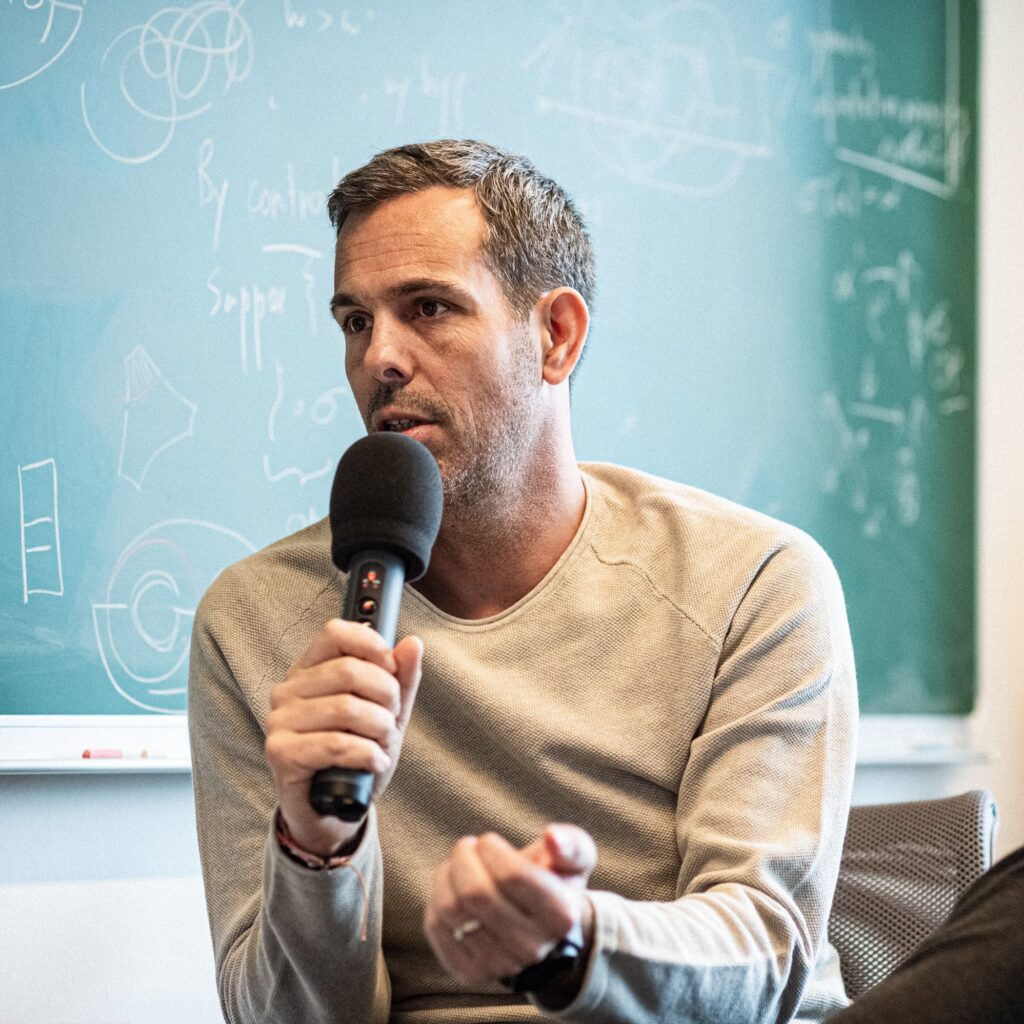
Plasticentropy France
Federica Bertocchini discovered that the larvae of Lepidoptera Galleria mellonella are capable of fast biodegradation of polyethylene (PE) the most resilient and also produced plastic material in the world. This was the beginning of a new research topic centered on the molecular devices responsible for the wax worm plastic degradation.
Recently, in Bertocchini laboratory the first PEases were discovered: these are enzymes produced by the larvae and capable of degrading PE within a few hours from exposure. The study of these new enzymatic activities, in view of potential applications towards plastic upcycling, together with the understanding of their role within the invertebrate physiology and ecology, constitute her current topics of research.

Maynooth University – Hamilton Institute
Damien Woods’ team at the Maynooth University’s Hamilton Institute mixes theory and experiment. Experimentally, the focus is on building nanoscale computers, robots and structures out of DNA. That work is driven by solid theory: algorithms for better prediction of thermodynamics and kinetics of DNA interactions, defining new models of computation, and proving mathematical results about the capabilities of molecular computers.
The work draws on ideas from computer science, mathematics, physics, chemistry, biology and engineering, and is funded by the European Research Council (ERC), Science foundation Ireland (SFI) and the European Innovation Council (EIC).
Adolphe Merkle Institute – University of Fribourg
Viola Vogler-Neuling is a group leader and SNSF Ambizione fellow in Prof. Steiner’s Soft Matter Physics Group at the University of Fribourg. She is leading the bioinspired photonics subgroup and received her Ph.D. in Physics from ETH Zurich in 2022.
Dr. Vogler-Neuling is a world-leading expert in the bottom-up nanofabrication of second-harmonic photonic crystals and metasurfaces. Driven by how nature can self-assemble highly complex three-dimensional photonic crystals, Dr. Vogler-Neuling’s subgroup is developing biomimetic structural color from natural building blocks.
Dr. Vogler-Neuling has recently received an SNSF Spark grant, an NCCR Bioinspired Materials Independence Grant, and an SNSF Ambizione grant to create photonic crystals from lipidic lyotropic liquid crystals and to analyze the molecular building blocks that give rise to structural color formation.

University of Fribourg
Hugo Parlier is a mathematician from the University of Fribourg in Switzerland interested in the study of shapes and their deformations. Many of his results are related to the study of curves on surfaces and often have a combinatorial and visual flavor.
In addition, he is passionate about sharing the ever evolving nature of mathematical research with as wide an audience possible. Recently, his efforts and fruitful collaborations led to activities involving puzzles and collaborative art activities being showcased in science museums, at the EPFL Pavilions, and at the World Expos in 2022 and 2025.

